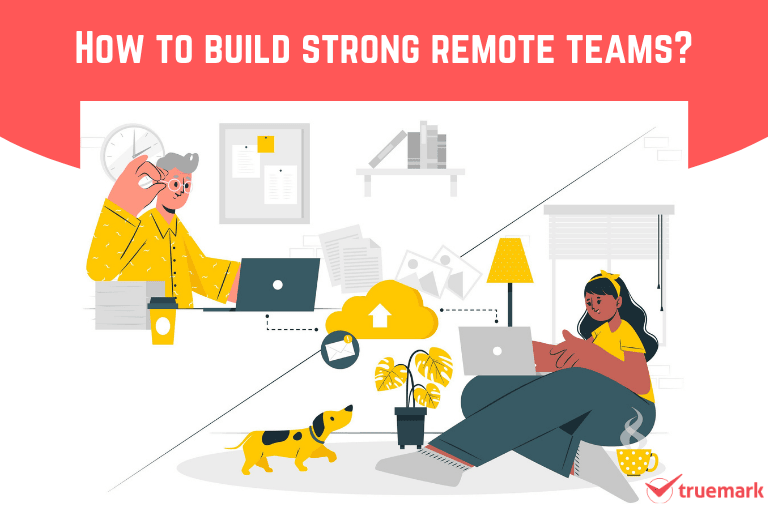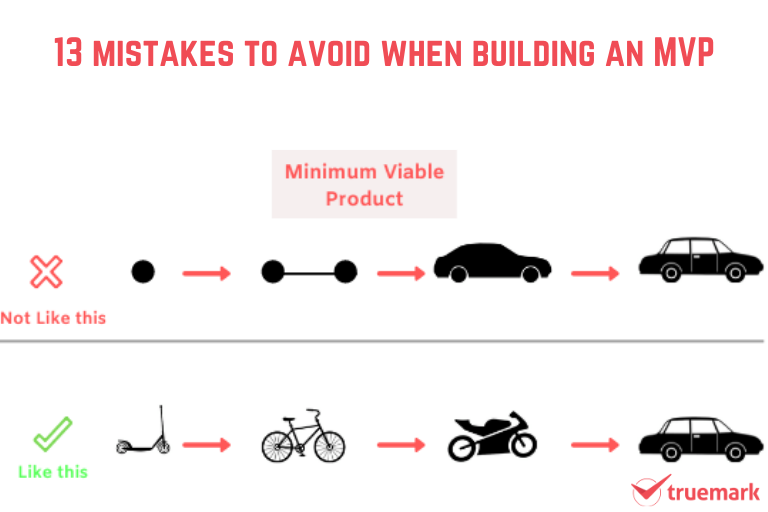With the way of working changing drastically and remote working skyrocketing year over year, building a strong remote team can be challenging. Being a new working culture for most businesses, managing them isn’t a simple task.
Without a team that is right before your eyes, the elements such as communication, coordination, and bonds that are the foundation of a company’s success can become your nightmares. Miscommunication can often occur, building trust can take time, and more than anything, coordination among team members can be lacking.
With the coronavirus came a revolutionary working culture- the rise of remote working. We know people were working remotely previously as well, but what really changed and boost the culture was the COVID-19 pandemic.
Working from home for over a year changed the way people work and their mentality. Now, more and more people want to work from home. According to Owl Labs, 59% of survey participants prefer remote working. 57% of employees who returned to the office preferred working from home full-time. In the USA alone, there are 4.3 million remote workers.
Amidst all these challenges, how to build strong remote teams and manage them? What can a manager or a business do? Don’t worry. Here we have listed the 16 useful tips to help you build strong remote teams.
How to build strong remote teams?
Build a positive remote working culture
Remote working is a new way of working. The number of people preferring to work from home is increasing drastically every year.
If you are planning to hire remote workers, then you need to build a positive remote working culture first. Most of the companies are still adapting to this new setup, so they don’t know how to onboard them, or manage them, yet. They still think that, once onboarding, they will adapt to their working culture automatically. It is one of the biggest misconceptions and mistakes most businesses make.
If the working culture isn’t comfortable for them or until you help them settle down, then they won’t be able to relax and adapt to their new environment. So, if you need to prepare an onboarding process, policies, guidelines, videos, etc., then do it priorly so it becomes easier for you when you hire new employees.
Plus, encourage existing employees to welcome new ones and help them settle down. This is how you build positive working culture.
Hire the right people
When hiring remote employees, ensure they are the right people for the job. Make sure they are experienced in working remotely and can handle day-to-day tasks with less supervision.
Most employees need someone to guide them. When they switch to remote working like the coronavirus forced everyone, then they can’t perform at their best. They will be expecting someone to help them every time. While supervising them is a must, you also have other roles and responsibilities to handle.
Always hire people who can work independently, and have strong communication skills, along with a friendly, humble, and helpful nature. Ensure they fit within the company culture, and they don’t leave the company when you need them the most.
So don’t make a hasty decision. Take your time and hire the best people with the right skills and experience.
Use tools effectively
Building and managing a remote team effectively requires tools to make your job easier. When your team isn’t around you, you need to make sure that the communication and coordination with them are on point. Moreover, handling projects, delegating roles and responsibilities, etc., are other challenges in remote working. And this is where tools become your lifesaver.
The effective use of tools like Slack, Zoom, Google Meet, etc., helps you stay connected with your remote teams. Trello, Asana, Jira, etc., aid you manage projects effectively and efficiently.
Using software project management and collaboration tools helps everyone stay on the same page. They help avoid miscommunication, task conflicts, etc.
You will be sure that no one is doing the same tasks, avoiding unnecessary time consumption and rework. So, choose the right software project management tools and use them effectively.
Ensure everyone knows their roles clearly
Delegating roles and responsibilities to every employee are crucial to the project’s success. As said earlier, when everyone knows their job, then there won’t be conflicts. Everyone will carry out their tasks with no hassle. And you don’t have to worry about multiple employees doing the same task.
When employees understand their roles and responsibilities clearly, they tend to do better. Unlike office setup, where everyone is around you, managing and guiding them is easy, in remote working, you can’t do it, comparably.
To build a strong team, you need to make sure that everyone is clear about their roles and responsibilities. Otherwise, it won’t be long before you start seeing mistakes you don’t encounter with in-house teams, like delays in the delivery of projects, misunderstandings, etc.
So, make sure everyone is accountable for their roles and responsibilities.
Communicate from time-to-time
Isolation and loneliness are the biggest enemies of any remote worker. Some get overwhelmed, affecting their performance, while some know ways to cope with them. But communication solves these challenges.
Besides, it is tough to build a strong remote working culture in the absence of communication. What binds a team together is regular interaction. Building connections and trust are easy when employees communicate regularly. Sharing updates and solving problems become effortless.
Not only communication brings everyone together, but it also helps achieve goals and objectives successfully.
It is easy to have face-to-face interactions in in-house, but it isn’t possible in remote working. But the use of communication tools like Zoom gives you the same feeling.
Practice online standups daily, host all-hands meetings weekly, one-on-one meetings, etc. If you don’t want your years of effort to build the company to crumble apart, then leverage the use of communication tools.
So, decide which tools to use for effective communication, mutual understanding, better collaboration, and help everyone stay up-to-date.
Create a family-like environment
To build strong remote teams, it is always crucial to help them settle down and feel comfortable. Create a family-like environment to ensure that they are an important part of the organization. One way to do it is through communication. Communicate with them regularly. It helps them adapt to the working culture quickly.
Try video calls instead of voice calls when you interact with remote workers one-on-one.
Involve remote workers whenever there is good news. This makes them realize they are an inseparable part of your family.
Spare some time for a fun session when you are in a meeting. Organize a friendly competition, encourage remote workers to say a few words about the company or their colleagues, etc.
At Truemark Technology, we use Slack all the time to keep in touch with every team member. Whenever a new member joins, we welcome them on our Slack channels and have a little introduction session to show them they are now a part of our family. Doing this helps them adapt to the new working culture quickly.
Hold weekly meetings
Besides one-on-one meetings, host weekly meetings involving every employee. It helps everyone get to know each other and keeps everyone engaged. Plus, everyone will feel comfortable and interact with each other even when you don’t hold any meetings.
We all know that in remote working, everyone is distributed, so there is rarely any time to build connections. So host weekly meetings to build trust and strong relationships. It helps improve communication, identify blockers, and solve them collaboratively, ultimately helping to create a strong working culture.
Encourage self-interaction
Besides weekly meetings, encourage employees to interact with each other.
Request your employees to have one-on-one communication whenever they have time. It encourages remote workers to do the same. It will take time to develop a connection, but it will help build confidence in them.
Since new employees are in a new working culture, they may have a lot of queries in their minds. To better understand their situation, existing workers can help them. For a smooth collaboration, all the team members must be in sync with each other and know each other’s working habits and styles. This helps to avoid conflicts and misunderstandings.
Practice buddy-system
There is no better way than a buddy system to help remote workers adapt to their new working culture quickly.
A buddy system is a practice where two people are grouped to help each other. In the workplace, a new hire is paired with an existing one to guide the former one.
The new employees can feel uneasiness when they are in a new environment. They hesitate to communicate and ask questions. However, the buddy system helps avoid confusion, eliminates any blockers, reduces social distance, and, most importantly, helps them adapt to the working culture fast.
When two employees are grouped, request them to have one-on-one communication regularly.
Appreciate remote teams’ hard work and achievements
One of the main cons of remote working is that people don’t see you working as compared to in-house teams. They have misconceptions that remote workers are doing less for the company. Similarly, remote workers feel like their achievements and hard work aren’t appreciated and don’t get the respect they deserve. This makes them demotivated. As a result, sometimes, they feel uninterested in working, and eventually; they leave the company and look for the right one.
Either in-house or remote teams, the company must appreciate everyone’s hard work and achievements. When they do this or share the good news, it motivates employees to give their best.
Make them feel they are valuable and an integral part of the company. And the management should do this every week or month and give them the recognition they deserve. Only then, the employees will be loyal and accountable, helping you build a strong remote team.
You can appreciate their hard work in meetings or send a message on a general channel in communication tools like Slack or Microsoft Teams.
Talk about their roles in the company’s success
When employees give their time and help achieve goals and objectives, a company must give them the respect they deserve.
So, talk about their roles in achieving the company’s goals.
Communicate how remote workers are helping the business to scale. It is a significant step to boost their morale and build a strong team.
Refrain from messaging too much
One of the common problems in remote working is the bombardment of messages and calls. We know it is necessary. However, it is also essential to know if the person you are texting is available or not.
Too many emails, messages, and calls disrupt the focus and concentration. It builds pressure on them, affecting their performance. So, avoid messaging too much or expecting them to reply immediately unless it is an urgent matter.
When using any communication and collaboration tools, invite or add employees to related groups and channels. This helps them stay focused and carry out their tasks efficiently. Otherwise, the message alerts will keep popping up, annoying them.
Watch out for a heavy workload
When you message the remote workers about the work, make sure the extra responsibilities don’t add workload pressure on them. Ensure the tasks they are doing are enough.
If the task is too urgent, inform them to prioritize their schedule and focus on it above other activities. Doing this avoids work stress and pressure. Otherwise, this will cause severe effects, draining the remote employees’ mental and physical health.
According to a study, 44% of work stress is because of workload.
Heavy workload causes 41% of employees to be less productive and 15% to look for a new job. (Source)
So, always delegate roles and responsibilities based on their skills and experience and how much they can handle the workload. Also, help them manage a heavy workload if such a situation occurs.
Look for ways to build a bond
Besides communicating, look for fun ways to build a strong bond with remote teams. If you have remote employees, help them fight isolation.
But, how?
Have a casual catch-up session involving every team member through video conferencing daily. When in a group, it takes away any pressure and hesitant nature the remote workers have. They will feel confident to interact with everyone seeing others.
Have a fun session, like a friendly competition between the employees to make the environment lively and interesting. This encourages participation.
Look for creative ways to build trust and bonds.
Ensure remote teams are taking time off
When employees are working from home, being unable to unplug from work is one of the major problems. They continue working, taking no breaks, and resting until they burn out themselves. So, as a manager or a business owner, you need to ensure they are taking time off after office hours.
Make sure the remote teams are taking vacations occasionally. Workload pressure prevents employees from giving their best and making rational decisions. But holidays lower their stress and solve these problems.
Plus, it is necessary to spend quality time with friends and family from time to time. This maintains their work-life balance.
So, encourage your remote employees to take time off from work as well.
Support your remote teams
Not everyone can settle into a new working culture quickly. So, support your remote workers as much as possible. Stay connected and identify if they have any problems adapting. If yes, then look for solutions collaboratively.
If you want to build a strong remote team, then you need to be available whenever they need you. Communicate with them regularly.
Help them identify their weaknesses and strengths. Aid them to improve their skills and counsel them to boost their career. This boosts the remote employees’ morale and makes them loyal to the company.
In Conclusion
Building a team isn’t as easy as it sounds. It takes months and years to build the right one. Developing a better working culture and providing an ideal working environment is the best way to build a strong remote team.
The remote workers should feel, “This is the right company for me.” Otherwise, it won’t be long before they leave the company. The above tips will help you build a strong remote team along with better working culture.
And if you are looking for a reliable development partner to work on your project idea, then Truemark Technology is here to help you make your dream project a reality. We will help you develop software that resonates with your brand. So, contact us for any development services. Plus, we provide free consultation services to answer your questions and clear your doubts.



